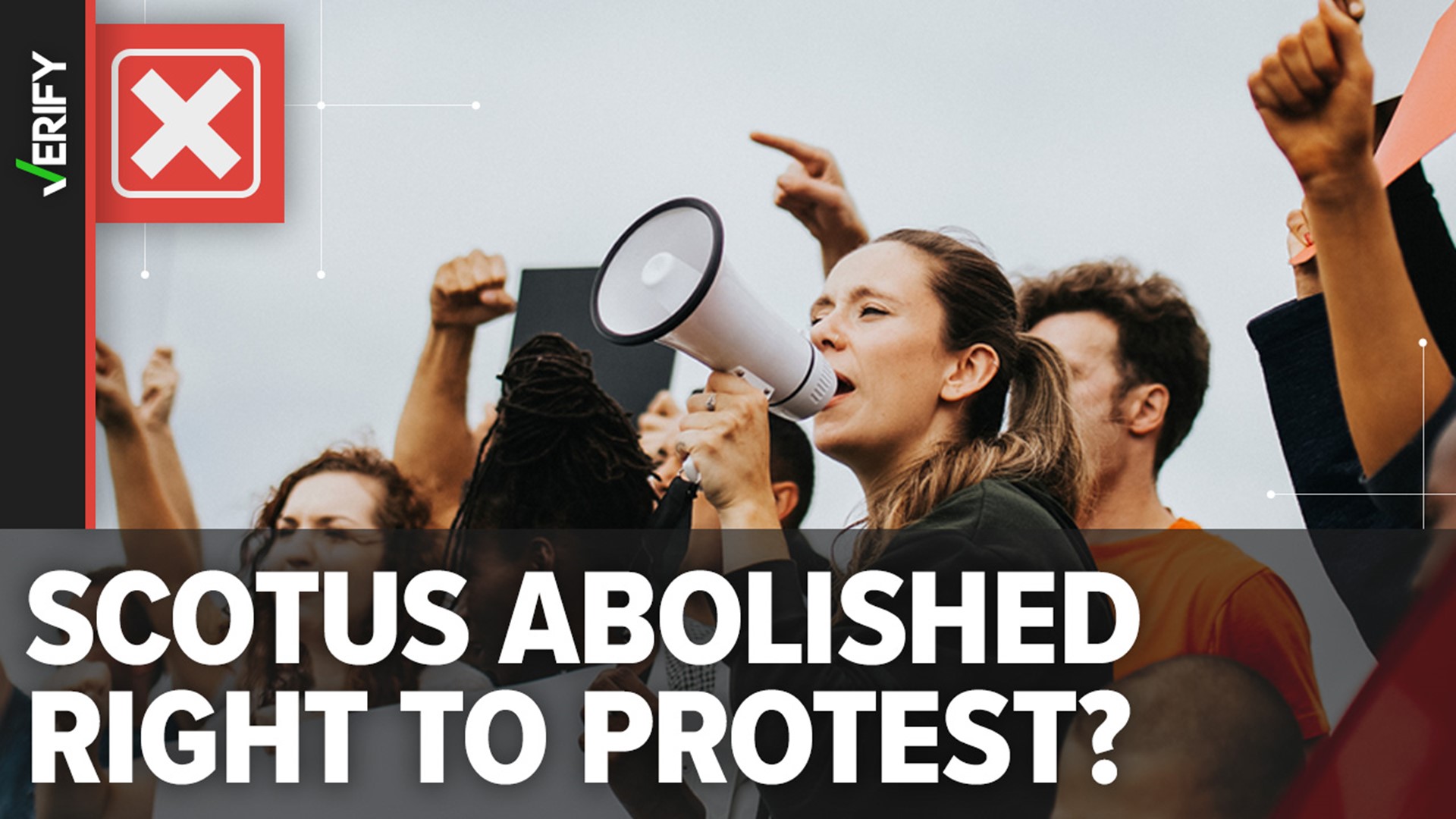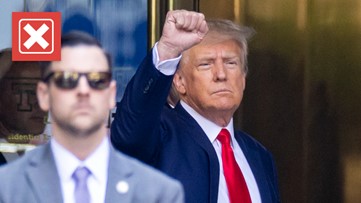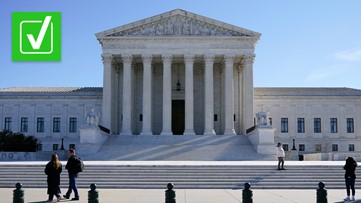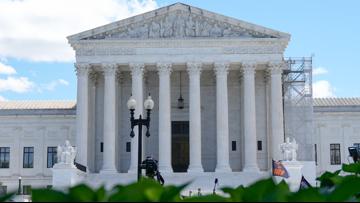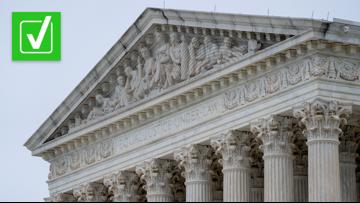UPDATE (07/11/2024): A Louisiana district court ruled on July 10 that a protest leader cannot be held legally responsible for injuries inflicted by another person’s violent act at the protest when it is undisputed that the leader didn’t intend for that violence to occur. The ruling comes after the U.S. Supreme Court declined to hear Doe v. McKesson in April, sending it back to the district court.
The original story continues as published below:
Americans have a constitutional right to peacefully assemble in the U.S. But in April, multiple social media posts on X, Instagram and TikTok claimed the Supreme Court had abolished the right for groups to protest in three states — Louisiana, Texas and Mississippi.
“So the Supreme Court has, as of yesterday, abolished the right to mass protest in 3 US States. That’s terrifying,” one post said.
Recent online search trends show many people are wondering if the Supreme Court really abolished the right to protest in three states.
THE QUESTION
Did the Supreme Court abolish the right to protest in three states?
THE SOURCES
- U.S. Supreme Court
- U.S. Court of Appeals for the Fifth Circuit
- American Civil Liberties Union (ACLU)
- Mckesson v. Doe legal documents
- SCOTUSblog
- Benjamin Barton, J.D., professor of law at the University of Tennessee Knoxville College of Law
- Joseph Fishkin, J.D., professor of law at UCLA School of Law
THE ANSWER
No, the Supreme Court did not abolish the right to protest in three states.
WHAT WE FOUND
The Supreme Court did not abolish the right to protest in three states, but it did decline to hear a case about civil liability for protest organizers, a decision that experts say could have a chilling effect on the right to protest.
On April 15, the Supreme Court declined to weigh in on a U.S. Court of Appeals for the Fifth Circuit ruling that allowed a civil case to go forward against a prominent Black Lives Matter activist who is being sued for damages by a Louisiana police officer. The police officer was injured at a protest the activist organized in 2016.
The court’s decision to not hear the case clears the way for people to potentially bring civil suits against protest organizers in Louisiana, Texas and Mississippi, where the 5th Circuit Court of Appeals handles federal appeals cases. Civil rights groups and freedom of speech advocates, including the American Civil Liberties Union (ACLU), fear this will discourage people from protesting.
On Nov. 7, 2016, an unnamed officer filed a civil suit against prominent civil rights activist DeRay Mckesson, who led a protest over the police killing of 37-year-old Alton Sterling in Baton Rouge, Louisiana earlier that year.
The officer, who was identified in court papers only as John Doe, was injured after he claimed he was hit by a “rock-like” object thrown by an unidentified person during the protest. The officer sued Mckesson for his role as the protest organizer because he claimed Mckesson “should have known” the protest would become violent.
This isn’t the first time the Supreme Court has considered this case.
In 2017, a federal judge threw out the lawsuit, but the officer appealed and the 5th Circuit Court of Appeals weighed in on whether the case could move forward. The circuit court ruled 2-1 that the officer had standing to sue Mckesson. Mckesson appealed that decision to the Supreme Court in 2020.
The Supreme Court at the time vacated, or voided, the 5th Circuit Court of Appeals’ decision, because of a question involving Louisiana state law. SCOTUS directed the lower court to ask the Louisiana Supreme Court to address whether a protest organizer could be held liable for injuries an officer sustains during a protest under Louisiana state law.
In 2022, the Louisiana Supreme Court issued an opinion that indicated a protest leader could be sued for negligence, according to SCOTUSblog, a website that provides independent news and analysis on the U.S. Supreme Court.
A divided 5th Circuit Court of Appeals then issued a new opinion and reaffirmed that the lawsuit could go forward. After that, Mckesson appealed to the Supreme Court again in October 2023.
The Supreme Court did not explain its April 15 decision to not hear the case and said nothing about abolishing the right to protest in Louisiana, Texas and Mississippi. Justice Sonia Sotomayor wrote a brief opinion that said the court’s “denial today expresses no view about the merits of Mckesson’s claim.”
The ACLU, who is representing Mckesson, and other free speech advocates are still concerned that the Supreme Court’s decision will have a chilling effect on future protests due to the threat of potential lawsuits.
“It is reasonable to worry here about the First Amendment right to protest, which this case is threatening to undermine,” said Joseph Fishkin, J.D., a law professor at UCLA School of Law.
“There’s a lot of disagreement, even within the conservative Fifth Circuit, about whether what that court did is appropriate or constitutional, and the bottom line is that we will have to wait and see where this case and others like it go in the future. It’s premature to say we know where the courts will end up,” Fishkin added.
Benjamin Barton, J.D., a Supreme Court expert and law professor at the University of Tennessee Knoxville College of Law, also said it’s too soon to know the actual implications until the merits of the case are fleshed out in court.
“[The Fifth Circuit’s decision] doesn’t exactly ban anything. What it does is it would allow a lawsuit for what the majority (of judges) in the Fifth Circuit calls negligent protesting,” Barton told VERIFY.
The lawsuit against Mckesson will now go forward in Louisiana, though no trial date has been set.
The Associated Press contributed to this report.
